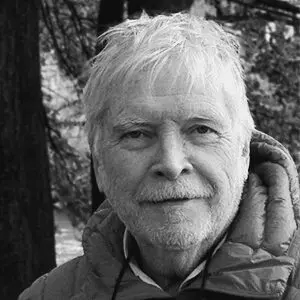

This is the tenth blog post in the series Sixteen Psychological Reflections on COVID-19 by Robert Romanyshyn
Without a mythic context as a backdrop for our lives, we are all too easily swept up in the current of the times. This dynamic applies not only to one’s personal life, but also to the collective lives of all of us. Myths are the larger stories that provide context and as such can often have therapeutic value in times of need.
Mark Rylance, celebrated English actor, theatre director, playwright and Shakespeare scholar, underscores this point:
“We need larger stories—mythological stories which touch upon the soul’s need for experience in life, something deeper, something more mysterious. If you keep in contact with the older, more mythological stories, they are not productive, they are not functional, they are not going to get you a job, but they keep the road curvy and spirally, rather than making the road as straight as possible from A to B. That’s a quick journey but it’s a terribly boring journey and you’ll be very sad when you die.”
Myths are the stories that shape the narratives by which we live. The Covid-19 pandemic, which is now rising in a second wave across the globe, needs not only a vaccine to address the biological aspect of its presence. It also needs a narrative that attends to the meanings of soul and its suffering.
In an OP Ed essay on March 26, 2020 in the New York Times, David Brooks speaks to this very point. Reminding us that Viktor Frankl, a survivor of the death camps in the Holocaust, argued that those who did survive were able to do so because they could find some meaning in the midst of the terror and atrocities in those camps. Drawing upon Frankl’s work, Brooks notes that meaning had three sources: “the work we offer in times of crisis, the love we give and our ability to display courage in the face of suffering.”
To these three, Brooks adds a fourth source of meaning that connects with the theme of this blog about myth as a larger story that informs the moment in which one lives. He says, “It’s the story we tell about this moment. It’s the way we tie our moment of suffering to a larger narrative of redemption. It’s the way we then go out and stubbornly live out that story. The menace may be subhuman or superhuman, but we all have the option of asserting our own dignity, even to the end.”
I can think of no better story at this moment than the novel The Plague published by Albert Camus in 1947. Describing a contagion that is infecting the citizens of Oran, his novel is a visionary and prophetic work that resonates today on a global scale.
Two characters in the story specifically portray all four sources of meaning described above. Jean Tarrou, a newly arrived stranger to the city, and Bernard Rieux, one of Oran’s physicians, are emblems of work, courage, love and dignity that stand out as a meaningful reply to crisis. They display how, to quote the last sentence in Brook’s essay, “meaning is a vital medication of the soul.”
Is there a specific myth that might be the backdrop of the Covid-19 pandemic? In the next blog I offer the myth of Prometheus as one that speaks to the largely unconscious depths of the pandemic and specifically addresses the psychological approach of these blogs.
Enjoy all the essays in the series Sixteen Psychological Reflections on COVID-19.
You might also enjoy Robert Romanyshyn’s course Reflections on Ecology and Soul. In this course, Robert takes us on a journey into the depths of the soul of the world and into those places where nature, psyche, technology, and humans meet.

Robert Romanyshyn
Robert D. Romanyshyn is an Emeritus Professor of Clinical Psychology at Pacifica Graduate Institute, an Affiliate Member of The Inter-Regional Society of Jungian Analysts, and a Fellow of the Dallas Institute of Humanities and Culture. He is also a Core Faculty Member at Jung Platform.
More Posts by Robert Romanyshyn3 Comments
Join the discussion and tell us your opinion.
Comments are closed.
Thank you so much for this post! It’s very meaningful to read this! I will check out “The Plague”!
thank you, Robert, for this eye-opening essay on the need for mythology in these times of COVID-19 — perhaps especially pertinent to those who, like Victor Frankl, suffer as the hyper-vigilance of PTSD becomes real — thanks, too, for the CAMUS reference, which I’ll peruses again now — personally, this essay of yours draws me immediately to the feminine, in the Beatles’ song: Let It Be:
When I find myself in times of trouble, Mother Mary comes to me,
Speaking words of wisdom, Let It Be.
We are on the same page, so to speak, about the mythic nature of story, perhaps the storied nature of myth.
You are right and David Brooks as well: when we have a story to believe in, we can tolerate much more than a life without a coherent narrative. I like Don Cowan’s idea in Unbinding Prometheus: Education for the Coming Age.
A myth, he says, is like air, most often invisible but necessary. Perhaps the CVirus has made the contours our our shaky national myth more vividly present. Another question your insights provoke: What else has gone viral today such that the pandemic is a call to recollect what is also dis-eased globally. A fine reflection, Robert. I am working now on what the nature of one’s beliefs are re. one’s personal myth. For we all need a myth to believe in.